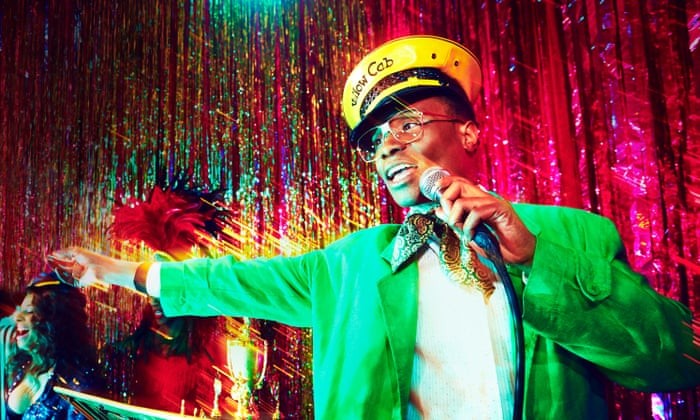I was angry. Not enraged, but angry nonetheless.
Like so many others I had eagerly awaited the return of the FX series Pose. My now-husband and I had watched the first two seasons together as part of our pandemic survival kit, and we were excited to get to the final season. Pray Tell, Bianca, Elektra, Angel, and all the other characters introduced me to the NYC ballroom culture of the late ’80s and early ’90s and, once the trophies were all distributed, the stark realities of life for transgender and other queer people surviving there. Those were the same years when I was struggling to figure out who I was as a closeted cis gay man 1,500 miles away. In the hyper-religious community where I lived and with the specter of HIV/AIDS hanging over my head if I chose authenticity, I chose the closet. Back then I could never have dreamed of their level of open-living despite intense marginalization.
So why was I upset by this third season? In fourth episode “Take Me to Church,” Pray (played by force-of-nature Billy Porter) learns he has AIDS-related lymphoma and six months to live. People in a position of knowing how much sand is left in their hourglass often want to mend fences before they can’t any more. To do that Pray catches a Greyhound to the Pittsburgh suburb where he was raised with his mother and aunties; they haven’t seen each other in decades.
That’s when it happened. Pray reveals he was sexually assaulted by a stepfather when he was young, and his family did nothing to stop it.
It wasn’t Pray or his mother I was angry at. It was the show’s writers and producers. Why did Pray have to be portrayed as an abuse survivor? It’s one of the oldest stereotypes in the gay book; a man is “turned gay” because of childhood sexual assault. Eventually I was able to verbalize my anger. Why couldn’t Pray have just been a gay man who left a repressive community for NYC? Why bring up (and to some degree, feed) ignorant notions in a way that validates them, particularly in the final season?
It felt like the groundbreaking drama had just thrown a shovelful of dirt in my face. Or a form of internalized homophobia was just played out big-as-life on my screen.
Little did I realize that Pray Tell’s category was Billy Porter Realness.
Setting out to learn more about Porter, I realized how biographical this episode was. About years of sexual abuse at the hands of a stepfather. About a church community that was more important to his family than his safety was. About the realization that those who loved him most weren’t going to risk their standing in the community to rescue the boy who was already suspect. The writers even set the scenes in East Liberty, where Porter’s abuse happened.
I don’t want to carry the comparisons too far. Porter has spoken in several interviews about how he wasn’t gay because of his predator; he was always gay and the predator preyed on that. He talks about his “handi-capable” mother who would be left with no means of support for herself and the Kinky Boots Tony winner’s young half-sister if she left the stepdad. The flamboyant-and-proud man has even said he told his mother to stay. In her stead, Porter pulled himself out of the home. The next time he saw his abuser was also the last time; his stepdad was on his death bed and died the next day.
What was most surprising was Porter saying that the abuse was the best thing that ever happened to him. I braced myself for a little Stockholm Syndrome, but instead learned an important one of Porter’s truths: It took him recognizing that none of the adults in his life were going to help him to get him busy taking care of himself.
As someone who luckily never experienced childhood sexual abuse, I only saw stereotype. But others were going to see themselves and hear their stories told through Pray. I needed to stay out of the way and not become yet another person for survivors to navigate around to make sure they are seen and heard. In fact, I was growing proud of Pray and the writers for taking this issue head-on and giving people who’ve been through similar situations a chance to see themselves represented on screen. Pose’s authenticity and groundbreaking continue.
Pray Tell, thank you for taking me to church. I’m fully converted and hope there’s a spot for me in the loft. (Second tenor, maybe?)
The Gay Goods is dedicated to engaging with a range of opinions and viewpoints. To share yours, email [email protected].




